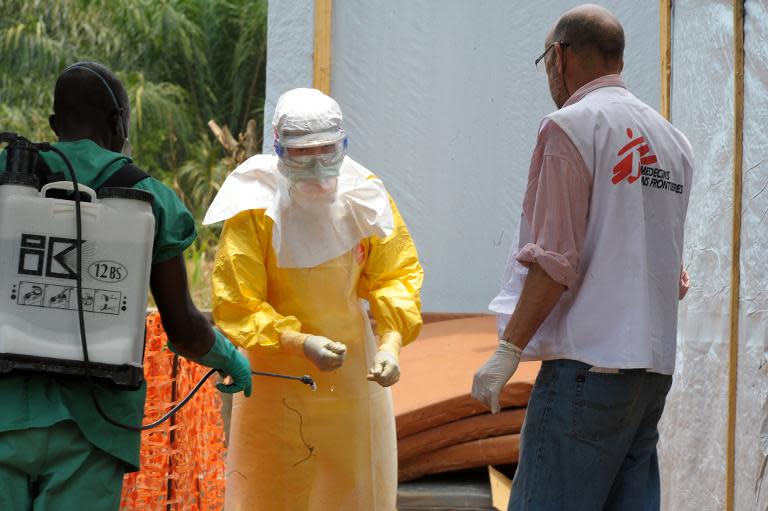Why You Should be Worried about Ebola
Today, August 8th, 2014 the World Health Organization declared that the Ebola outbreak in West Africa is now a 'Public Health Emergency of International Concern'. This represents only the third time that the World Health Organization (WHO) has declared a public health emergency, with previous declarations coming from the reemergence of polio and the H1N1 virus or 'Swine Flu' pandemic.
None of these viral outbreaks comes close to the level of mortality of Ebola. From current reports, the Ebola outbreak in West Africa is of a virus with around a 55% mortality rate, which while low for Ebola (It has occasionally had mortality rates as high a 90%) is still several times worse then any pandemic virus in recent memory. The Spanish Flu, which is often considered something of a measuring stick for modern pandemics had a mortality rate of around only 10-20% of cases. This is even higher then the Black Death which had a mortality rate of 30-40% of cases.
While there are a number of limiting factors for the spread of Ebola, foremost among them being that it isn't an airborne virus, the continual infection of emergency workers (around 10% of reported cases and deaths) show that despite it being only transmittable through bodily fluids and blood, it is spreading even to those who take the greatest precautions relatively easily. This is because, Ebola is very infectious, requiring only a tiny amount of exposure to be transmitted. It also has a history of being transmittable through aerosol. Considering the speed of the outbreak's spread and the continual cases of aid workers, I'm pretty sure this strain is capable of spreading via aerosol. A cough, a sneeze, and spit therefore become transmission vectors.
With 140 to 150 cases of Health Care workers being infected even with full-body protection (like what's shown above), one has to wonder if it's even possible to really protect doctors and nurses from the disease.
Currently the Ebola outbreak has spread to just four countries (Liberia, Sierra Leone, Guinea, and Nigeria) though the United States and Spain both have taken citizens with the virus back home for treatment. However, the situation is set to rapidly worsen as Liberia's Health Care system has officially collapsed and doctors are fleeing the country to escape the virus. As a result, Liberia's population of 4.1 million people are basically completely unprotected from the virus.
Recent news also lists suspected cases now in Benin and Uganda, increasing the number of countries affected by the disease to six. The total population of these countries is over 240+ million people, with the largest population at risk being that of Niger with around 175 million. One of these suspected cases traveled through South Sudan, so that's another country that may be at risk as well.
Scares have happened all across the globe as fears of the virus have led to incidents at airports and on borders.
The decision to bring home American and Spanish citizens who had been infected, worries me. If the disease is as easily transmittable to health care workers as it seems to be, there is a risk that those who are working at the hospitals where these people are being treated will be infected.
Ebola has a three-week incubation period before symptoms begin to appear. This means that say... someone in Liberia that has been infected decides to flee the country, it will be three weeks before their first symptoms appear. From the diseases onset to even after death (Ebola is actually at its most infectious from contact with dead bodies) he will be capable of spreading the disease. The lower then normal mortality rate of the current strain is actually making the disease spread faster, as people are living long enough to spread it to many others.
How far can a man go in three-weeks from exposure to onset? Well... Practically anywhere. Some direct flights between infected countries have been closed, but this will not insure the containment of the disease as a person could jump the border, get onto a plane in an unaffected country and fly anywhere in the world. One of the most recent cases flew through South Sudan, and there have been scares involving flights from the Middle East. Moreover, the WHO is estimating that only 25-50% of cases are being reported, making the likely total number of cases between 4-8 thousand at this point.
So far, we've actually been lucky it hasn't spread beyond West Africa, but our luck can't hold out forever and as the Liberia Health System implodes and people begin to flee the disease areas, I suspect it will get worse and fast. Thus far, Ebola has never spread beyond West Africa but if this is something that will hold true in this case?
I'd really hate to gamble on it.

No comments:
Post a Comment